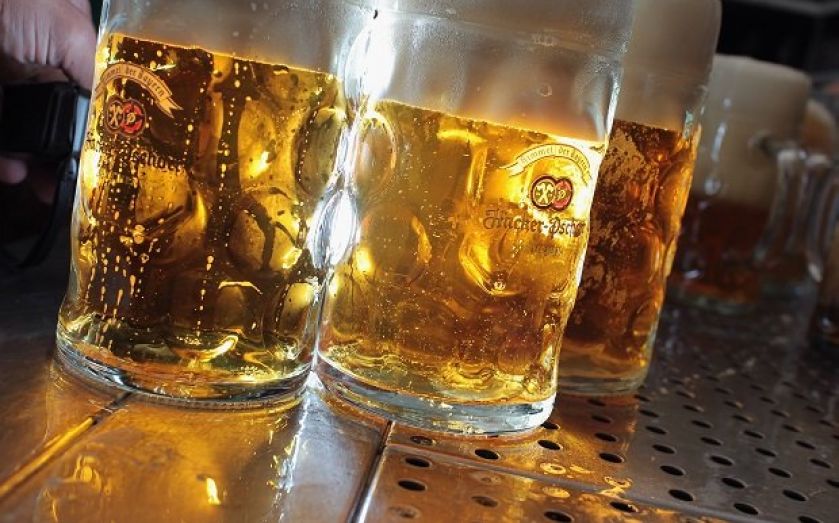Six reasons why the UK’s pub industry is dying

It looks like Britain's pub industry is struggling to get over a nasty hangover. Around 21,000 pubs have disappeared since 1980 and analysts expect thousands more to close before the decade is out, according to a new research by the Institute of Economic Affairs. But isn't Britain supposed to be a nation of binge drinkers? What's going on?
Taxation and regulation
A slew of policies over the last seven years have effectively choked Britain's pub industry.
Heavy taxes on alcohol have ensured beer continues to rise above the rate of inflation, while the smoking ban has pushed people out of pubs.
"Although only 20 per cent of Brits smoke regularly, smokers have always been disproportionately more likely to drink and visit pubs," the report said. Pub customers who smoked fell over 14 per cent in the two years after the introduction of the smoking ban.
"It's the economy, stupid"
Economic changes have also encouraged Britain's distaste for traditional pubs, says the IEA: real wages have stagnated while the price of an average pint continues to climb above the rate of inflation, pushing it further out of consumers' reach.
While it's encouraged savvy shoppers to buy more alcohol from supermarkets, this is reinforced by the fact that in recent years, people have simply preferred to drink in the comfort of their own home.
Beer Tie
Last month MPs voted to abolish tied pubs, meaning landlords traditionally tied to one brewery will be able to buy their beer on the open market. However, according to the report, this will make little difference to the health of the industry.
"The blame attached to the beer tie has been greatly overstated", the report said. "There is little evidence that pubs owned by PubCos have been closing permanently at a faster rate than those in the rest of the sector."
Cultural changes
Cultural changes are also blamed for the decline of Britain's pub industry.
"People have warm, comfortable homes and would prefer to share a bottle of wine in front of the television than spend the evening in the pub," the report said.
Going to the pub is also falling out of favour because of a "mild taboo against lunchtime drinking and the firmer taboo against drink-driving."
Wine over beer
Britain's favourite tipples have undergone a massive change in recent decades.
We now drink far more lager like Carlsberg and San Miguel than traditional ale or stout (despite the recent upsurge in popularity for craft beers). There's also been a massive surge in the popularity of wine since the 1970s.
While beer is seen as much better when it comes from a pub's tap, we're now much less likely to order this, which means pubs are losing a valuable edge over their competitors.
"In terms of quality of drink, publicans add less value than they did when they were responsible for keeping good beer and rotating their selection of ales", the report said.
Blame it on the alcohol
In the last 10 years, average levels of alcohol consumption have fallen 18 per cent. According to the report, the lack of people buying beer in pubs is driving the decline.
While beer consumption has plunged, wine and spirit sales have barely changed since 2003, and we're actually drinking more cider.
"Cause and effect cannot be proven", the report said. "But these facts are consistent with the hypothesis that the decline in pub going has led to a fall in beer consumption which, in turn, has led to a fall in overall alcohol consumption," the report said.